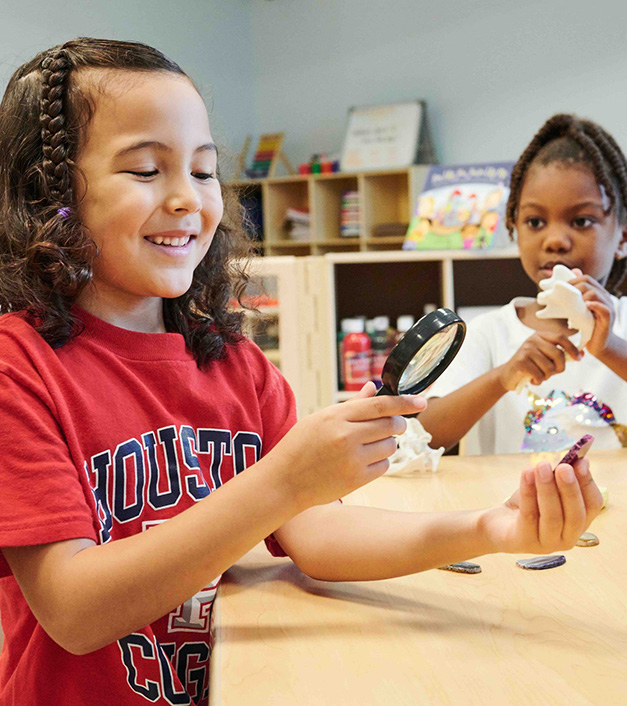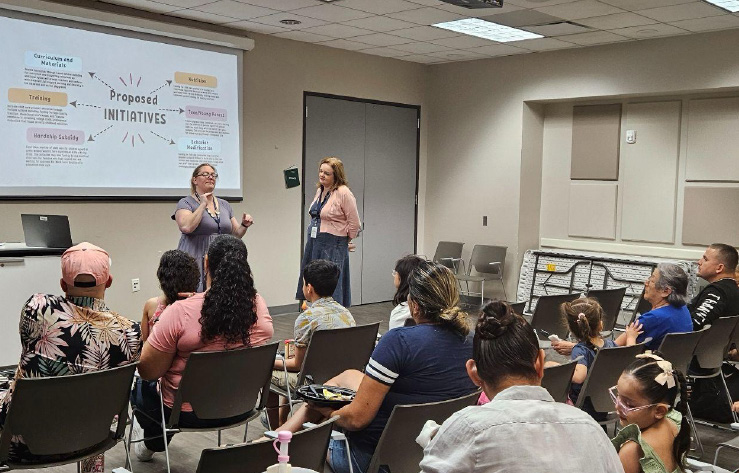Elevating Early Learning and Child Care Quality with Harris County Public Library Precinct 3
Klein Community
HARRIS COUNTY EARLY LEARNING QUALITY NETWORK (ELQN)
COMMUNITY PROFILE
Stay connected! Sign up for ELQN updates.
ABOUT HARRIS COUNTY ELQN
Harris County’s Early Learning Quality Network (ELQN) is a community-centered initiative dedicated to strengthening early learning and child care across the county. Supported by the Harris County Department of Economic Equity and Opportunity, this three-year effort relies on community input and local data to guide its work. This profile highlights the initiative’s progress in Klein (located in Harris County Precinct 3) through December 2024.
Across Harris County’s four precincts, five communities identified as Child Care Deserts with high social vulnerability are participating in ELQN. Local Network Organizations (LNOs), chosen for their strong ties to these areas, lead efforts to engage child care providers, families, and community members in identifying challenges, priorities, and improvement strategies related to early learning and child care. CHILDREN AT RISK, serving as the Network Support Hub (NSH),provides LNOs with technical assistance and oversees funding for community identified quality enhancing initiatives. By fostering community collaboration and leveraging local strengths, ELQN demonstrates Harris County’s shared commitment to building a brighter future for our youngest learners.
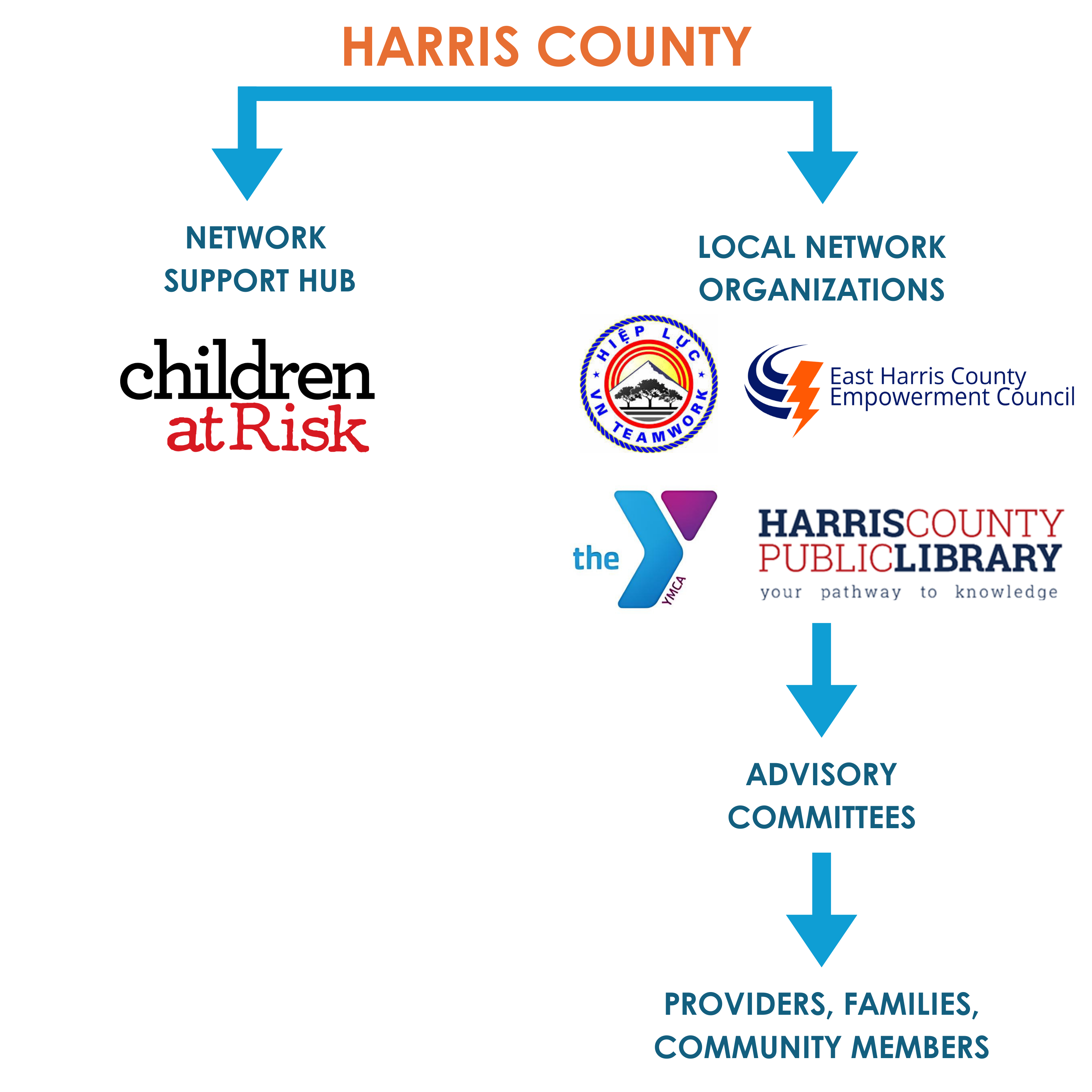
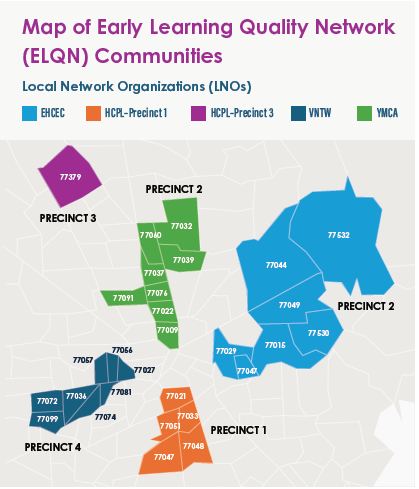
East Harris County Empowerment Council: Precinct 2
Harris County Public Library: Precincts 1 & 3
VN TeamWork, Inc.: Precinct 4
YMCA of Greater Houston: Precinct 2
LNO Spotlight | Harris County Public Library (HCPL)
The Harris County Public Library (HCPL) was selected to coordinate the ELQN initiative in two precincts, including Precinct 3, where Klein is located. HCPL is a network of 27 community-focused branch libraries offering programs and services that foster literacy and lifelong learning.
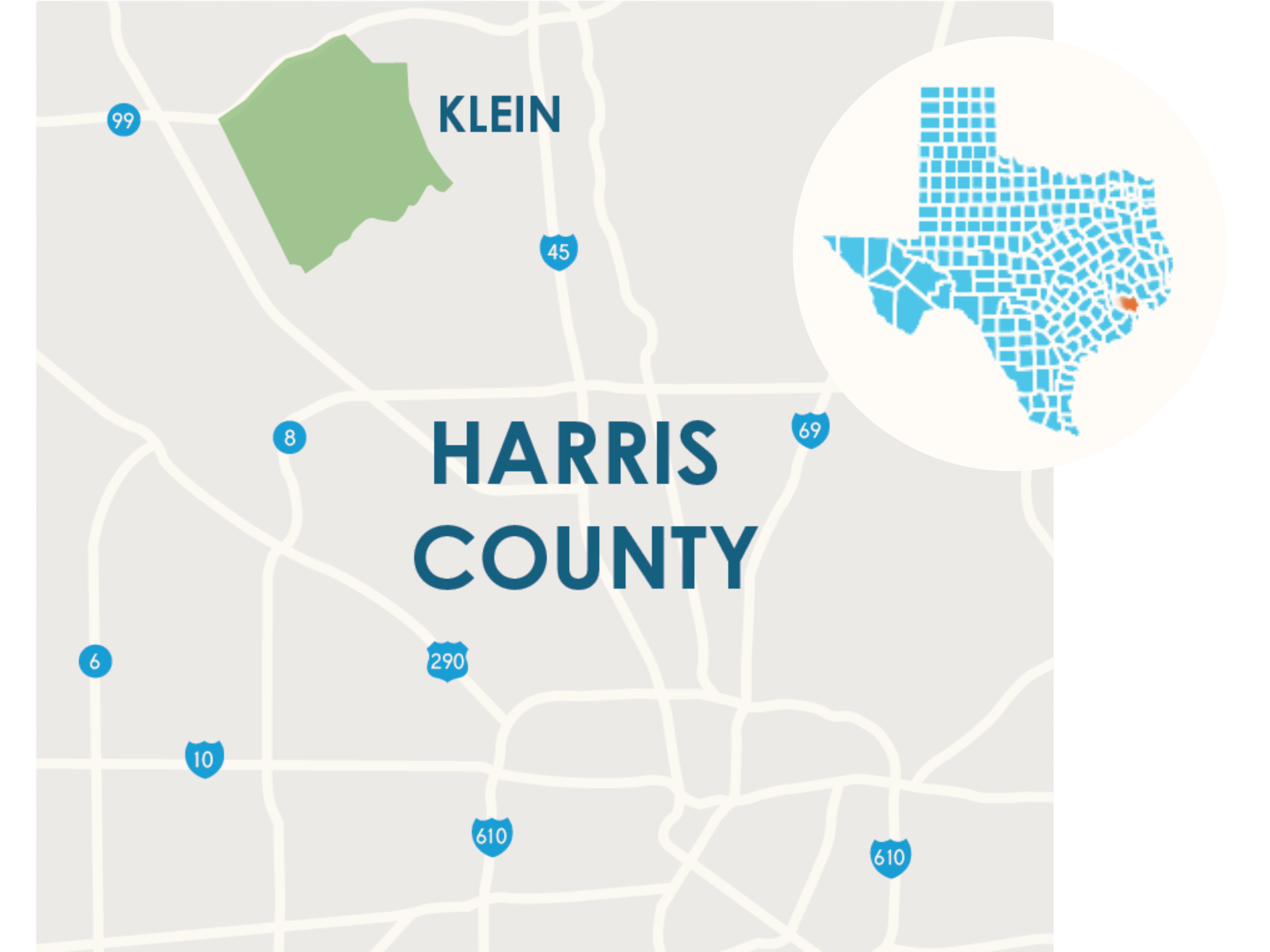
AT A GLANCE
Klein Community
The Klein area, located in northwestern Harris County, Texas, is a suburban community celebrated for its rich history, natural beauty, and strong public school system. Klein’s unique mix of history, excellent schools, and access to nature make it a close-knit and desirable community in the greater Houston area.
Number of Providers
Estimated Number of Seats
Estimated Children in Need
KLEIN COMMUNITY
Total Population
%
Population Under Age Five
Median Household Income
The Klein area, located in northwestern Harris County, Texas, is a suburban community celebrated for its rich history, natural beauty, and strong public school system. Originally established in the 1840s by German immigrants, the area began as an agricultural community and has preserved its cultural heritage through historic sites and churches. Over time, Klein has evolved into a family-friendly suburb, characterized by a blend of residential developments, wooded landscapes, and a suburban-rural atmosphere. It shares postal services with nearby Houston, Spring, and Tomball, reflecting its growth while preserving its historical roots. Klein Independent School District, renowned for academic excellence and extracurricular programs, continues to attract families and foster a strong sense of community. Residents also enjoy abundant parks, trails, and green spaces, with Meyer Park as a favorite destination for sports, picnics, and birdwatching.
Race & Ethnicity
- White 6.9%
- Black 14.1%
- Hispanic or Latino 32.3%
- AAPI 8.6%
- 2 or More Races 2.9%
FOSTERING COMMUNITY ENGAGEMENT THROUGH ELQN
To prioritize community voices, LNOs provided residents with many meaningful opportunities to share their ideas on how to improve and expand early learning and child care opportunities within their neighborhoods. In spring and summer 2024, HCPL organized outreach events, listening sessions, and town halls to gather input from child care providers, families, and other community members. During this period, residents were also encouraged to apply to the ELQN Advisory Committee, which was responsible for identifying key needs and envisioning what high-quality care could look like in their communities.
The HCPL Advisory Committee, consisting of two community members, three parents, and representatives from six early learning and child care programs, played an essential role in considering community input, analyzing relevant data including community surveys, and generating a plan to address local needs while staying aligned with community priorities.
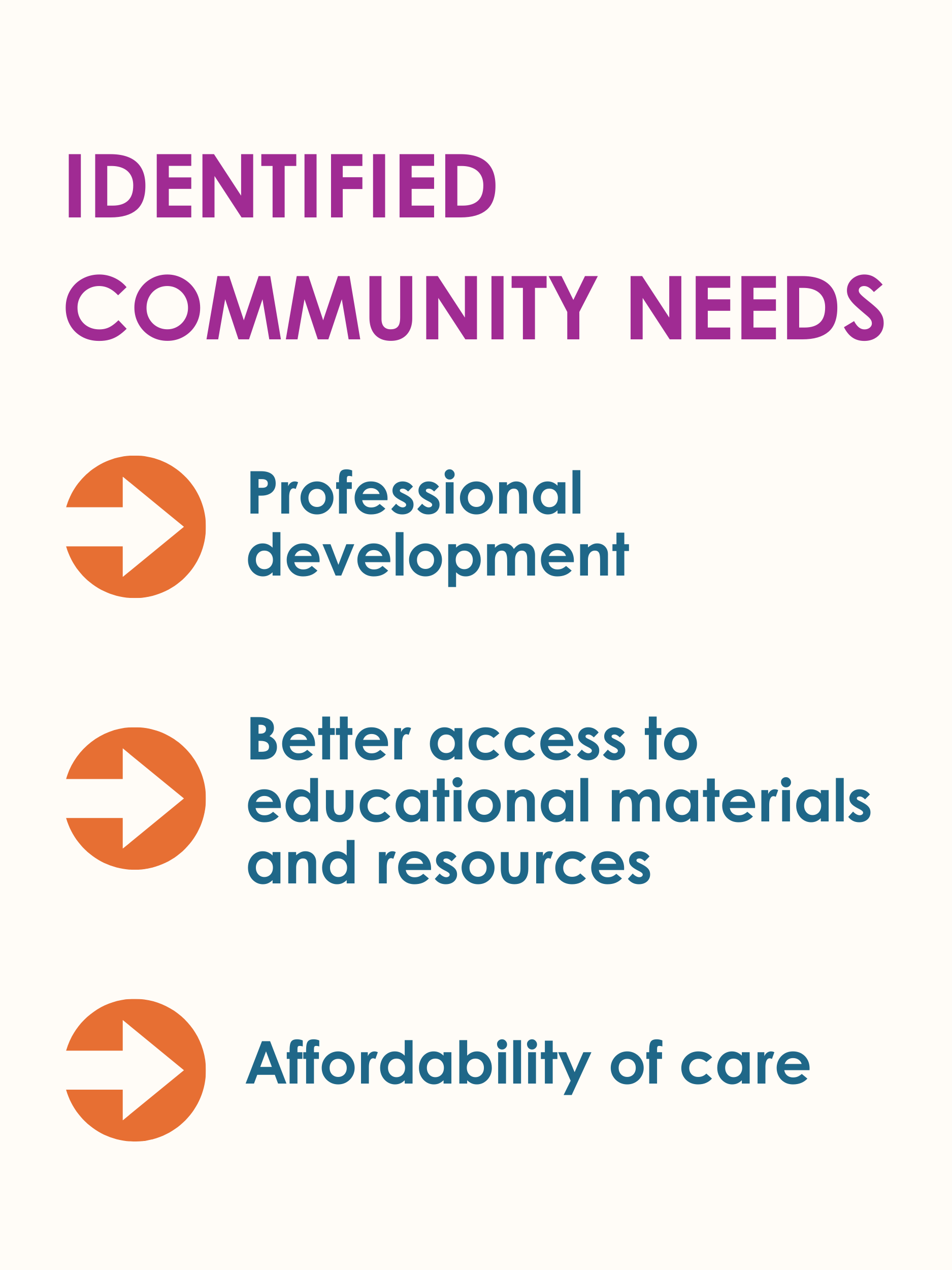
ELQN COMMUNITY CENTERED PLANNING PROCESS
Through this process, the HCPL team and the ELQN Advisory Committee identified key early learning and child care challenges in Klein. Providers reported difficulties recruiting qualified staff and a lack of access to essential educational resources needed to support every child. They also highlighted challenges with family engagement, managing difficult behaviors, and supporting neurodivergent children, with only 17% of providers feeling adequately equipped to meet these needs.
Affordability emerged as a significant issue, with over half of respondents citing funding constraints as an obstacle to providing quality care. Despite these hurdles, Klein’s strong sense of community, access to recreational facilities, and focus on education and family offer a solid foundation for enhancing child care quality and accessibility.

ADAPTING STRATEGIES TO STRENGTHEN COMMUNITY OUTREACH
HCPL’s efforts to engage the community through ELQN demonstrate how learning and adapting can turn early challenges into success.
Faced with low participation at initial town hall meetings, one team member candidly shared, “Even I’m in the town hall and I’m like, this is boring. I know why nobody is showing up.” Recognizing the need for a new approach, the team shifted to hosting family-centered events and leveraging individual team members’ strengths. As another staff member reflected, “Once we figured out what the individual strengths were of the team, we were able to get more success.”
This adaptability extended to outreach strategies, including door-to-door engagement, which helped spread the word about ELQN and grow event participation. Over time, these changes not only boosted turnout but also increased team confidence and morale. As one team member noted, “Being able to see my team be happy about their turnouts has made me happy, and it’s made them more confident in the work that they’re doing.” By embracing flexibility and focusing on strengths, HCPL created more impactful events and fostered stronger connections with the community.
THROUGH THEIR EYES: AMPLIFYING COMMUNITY VOICES WITH PHOTOVOICE
A child care provider joined the Photovoice project to explore the experiences of families, providers, and community members with early learning and child care in Klein. She captured photos and shared stories—both her own and those of her neighbors—highlighting community needs, key issues, and opportunities for improvement. Below, she shares her photos and narratives about the community.
BUILDING BONDS AND BRIGHT FUTURES AT THE LIBRARY
Ms. Brandt takes her children to the library once a week, fostering a love for reading and learning while keeping them connected to the community. This weekly visit allows her children to explore a variety of books and engage with early literacy programs designed for young learners. These programs enhance social skills, spark curiosity, and build foundational knowledge, enriching their educational experiences.
At night, the family enjoys reading together, creating cherished memories and strengthening their bond. Libraries are more than just places to borrow books; they serve as gateways to learning and community connection. They offer educational resources, events, and opportunities for personal growth. Ms. Brandt’s children benefit from these resources, setting them up for a brighter future and a higher quality of life.
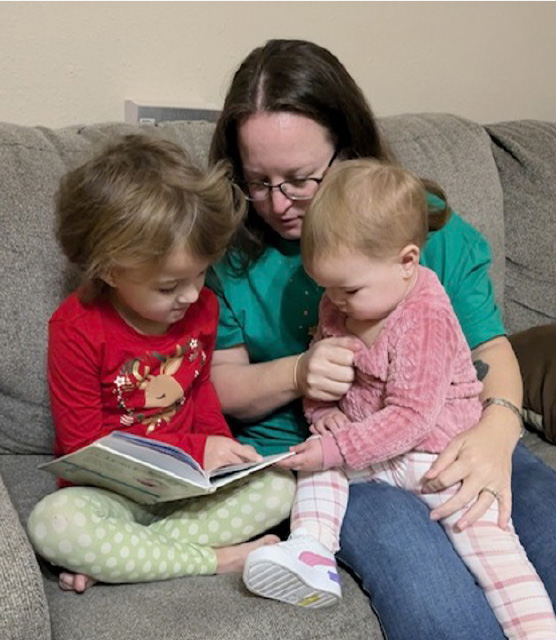
I can relate to Ms. Brandt’s commitment, having taken my own children to library storytimes when they were younger. Now, at 17 and 24, they are honor-roll students. Ms. Brandt’s actions remind us of the importance of nurturing curiosity and creativity through reading. Libraries can further support families by offering more community-oriented programs, such as storytime sessions, book clubs, and workshops, that foster lifelong learning.
– Early Childhood Teacher & Child Care Provider
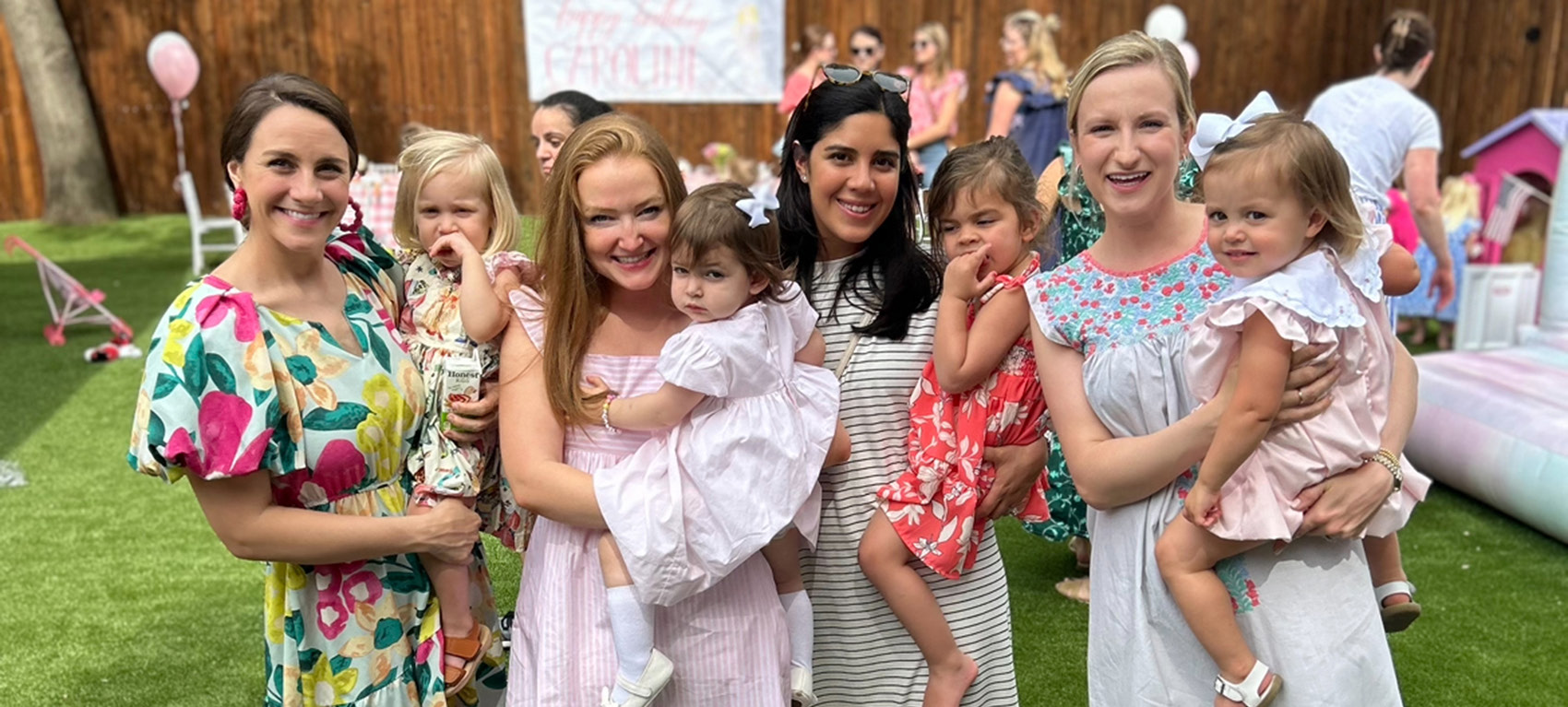
ELQN STRATEGIES TO ENHANCE EARLY LEARNING AND CHILD CARE QUALITY
After identifying and prioritizing the early learning and child care needs of the
community, the ELQN Advisory Committee submitted a Child Care Quality Action Plan (CCQAP) to Harris County and CHILDREN AT RISK. This plan included quality improvement strategies that aligned with community needs. After a feasibility review by Harris County, strategies were finalized in late 2024. Identification of needed resources began in late 2024, with implementation scheduled to take place throughout 2025 and 2026.
Child Care Quality Action Plan (CCQAP)
The CCQAP was developed by LNO staff and the ELQN Advisory Committee to address the key needs identified in each community. Drawing on community input and local data, the plan outlines actionable strategies to be implemented in collaboration with the county to meet these needs effectively.
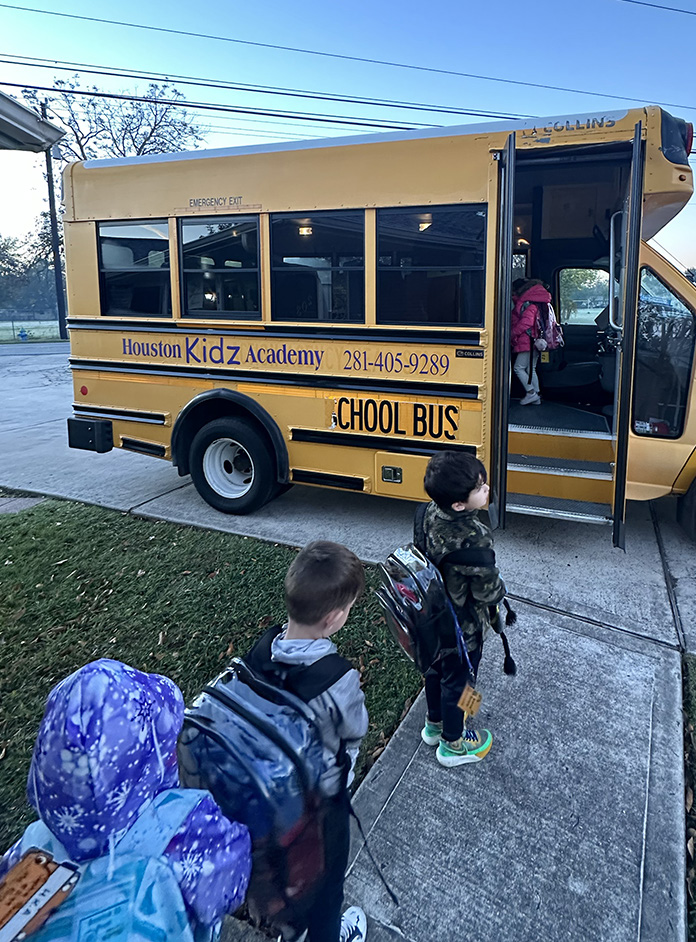
TURNING NEEDS INTO ACTION: ELQN STRATEGY GUIDE
COMMUNITY IDENTIFIED NEED
Professional Development
in behavioral intervention skills to support child care workers’ ability to manage severe behaviors and engage with diverse child populations
Training and Professional Development
Training and professional development programs will help parents, caregivers, and child care workers in Harris County gain skills to support young children’s growth and learning. Training on topics like child development and creating inclusive, welcoming environments will be offered free of charge. Participants will also receive resources, coaching, and stipends.
COMMUNITY IDENTIFIED NEED
Better access to educational materials, curricula, and supplies
that support educators for neurodiverse children and ensure cultural inclusion children’s safety
Curriculum and Materials
This strategy will provide families and child care providers with high-quality, developmentally appropriate learning materials and curricula aligned with Texas Early Learning Guidelines. Families will receive kits with toys, books, and activity guides tailored to their children’s age and language. The program will ensure equitable access through outreach, bilingual support, and direct consultation, fostering growth and learning in diverse early education settings.
COMMUNITY IDENTIFIED NEED
Safety and Facility Equipment
that addresses safety concerns, improves playgrounds and indoor areas, and supports outdoor learning through gardens and music spaces
Facility, Safety, and Security
This strategy will help child care centers and homes improve their facilities, safety, and security. Providers will apply to receive upgrades like new furniture and outdoor play equipment, or safety equipment such as cameras and childproofing items. Programs will be provided with customized items tailored to their needs and support for installation.
COMMUNITY IDENTIFIED NEED
Affordability
or those who have experienced a sudden and catastrophic emergency
Emergency and Temporary Care
This strategy will help families with young children afford child care during tough times, such as after a job loss, during emergencies, or while waiting for assistance from other programs. Families will apply through local child care centers, which will partner with ELQN to provide temporary help. Centers will receive financial support directly, ensuring both families and providers get the support they need in a timely manner.
ABOUT THE ELQN EVALUATION
The ELQN evaluation seeks to understand the planning and design, implementation, and community impact of the initiative over three years. Using diverse data sources—including community storytelling through photographs and narratives, interviews, focus groups, and surveys—the evaluation will provide actionable information on this community-centered initiative, documenting lessons learned along the way. The findings will enhance Harris County’s ability to serve young children and their families.
Engage with ELQN
Join us in our mission to make a lasting impact across Harris County.
Stay Connected
Follow @childrenatrisk on social media and subscribe to our newsletter to stay updated on our progress and learn more about how ELQN is making a difference in early learning across Harris County.
ACKNOWLEDGEMENTS
AUTHORS
Lisa Lopez-Escobar
Kate McKenney, EdD
Sherylls Valladares Khan, PhD
CONTRIBUTORS & REVIEWERS
Harris County Department of Economic Equity & Opportunity
CHILDREN AT RISK
East Harris County Empowerment Council (EHCEC)
EDITING
Cathy Cambron, Editcetera
DESIGN
Danielle Ness, Hey Darlin’
